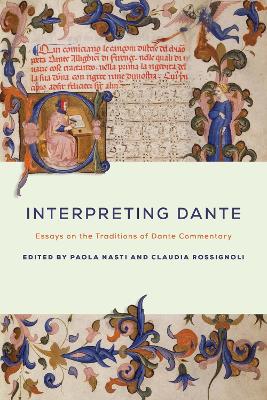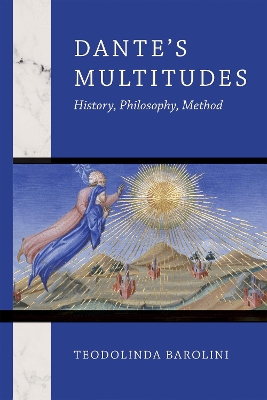William and Katherine Devers Series in Dante and Medieval Italian Literature
2 total works
Interpreting Dante
In Interpreting Dante: Essays on the Traditions of Dante Commentary, Paola Nasti and Claudia Rossignoli gather essays by prominent scholars of the Dante commentary tradition to discuss the significance of this tradition for the study of the Comedy, its broad impact on the history of ideas, and its contribution to the development of literary criticism.
Interest in the Dante commentary tradition has grown considerably in recent years, but projects on this subject tend to focus on philological reconstructions. The contributors shift attention to the interpretation of texts, authors, and reading communities by examining how Dante commentators developed interpretative paradigms that contributed to the advancement of literary criticism and the creation of the Western literary canon. Dante commentaries illustrate the evolution of notions of “literariness” and literature, genre and style, intertextuality and influence, literary histories, traditions and canons, authorship and readerships, paratexts and textual materiality. The volume includes methodological essays exploring theoretical aspects of the tradition, such as the creation of a taxonomy for categorizing typologies of commentaries; the relationship between commentators and their contemporary readers; the interplay between written and visual commentaries; and the impact of patronage on the forms of exegesis. Other essays, including two in Italian, examine case studies of individual commentaries, giving an account of the modus operandi of Dante’s exegetes by relating their approaches to the cultural, ideological, and political agendas of the community of readers and scholars to which the commentators belonged.
A critical addition to Dante studies that illuminates the poet’s disruptive impact within Italian culture and foregrounds Barolini’s marked contribution to the field.
In Dante’s Multitudes, the newest addition to the renowned William and Katherine Devers Series in Dante and Medieval Italian Literature, Teodolinda Barolini gathers sixteen of her essays exploring the revolutionary character of Dante’s work. Embracing the Vita Nuova, De vulgari eloquentia, Convivio, Epistles, Monarchia, and Rime, and of course the Divine Comedy, these essays together feature the many facets of the poet’s enduring legacy.
Dante’s Multitudes showcases the poet’s embrace of multiplicity, difference, and disruption in five parts, each with its own general focus. It begins with an introductory essay on method and the use of history in order to set the stage for the expert analyses that follow. Barolini treats various topics in Dante studies, including sexualized and racialized others in the Comedy, Dante’s unorthodox conception of limbo, his celebration of metaphysical difference within the paradoxical unity of the Paradiso, and his use of Aristotle to think disruptively about wealth and society, on the one hand, and about love and compulsion, on the other. The volume closes with a final meditation on method and “critical philology,” highlighting the ways in which philology has been used uncritically to bolster fallacious hermeneutical narratives about one of the West’s most celebrated and influential poets. Barolini once again opens avenues for further research in this compelling collection of essays. This volume will be of interest to scholars in Dante studies, Italian studies, and medieval and Renaissance literature more broadly.

